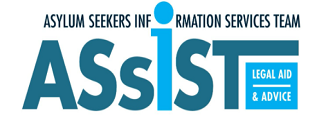ASsIST 2025
Towards the end of 2024, the Board of A.Ss.I.S.T. has made significant decisions to ensure the sustainability of our services. We are now registered in the the Canton of Fribourg, Switzerland as a non-profit association: ASsIST.CH. Our tax-exempt status has also been confirmed. This strategic initiative aims to reduce overhead and other costs considerably.
The lessons learned during our transition to remote services throughout the COVID lockdowns have allowed our team to continue effectively delivering services. Currently, most of our clients are located in Closed Controlled Access Centres (CCACs), some in administrative detention, and many lack the resources to travel to our team in Athens. However, with access to the internet via mobile phones, remote service delivery is not only possible but also efficient and effective.
To maximize the experience gained over five years of service delivery, we streamlined our operations in response to declining donations and the increasingly competitive landscape for grants that affects all non-profits working with asylum seekers and refugees in Greece. By significantly reducing overhead costs since mid-2024, we have been able to redirect resources toward sustaining essential services.
We now operate almost exclusively in a remote capacity, focusing on cost-efficient methods of service delivery.
The engagement of additional volunteers in key roles—such as lawyers, Client Services Managers, and a Social Media Manager—has been instrumental in our success. Since mid-2023, we have seen a significant improvement in the caliber of our volunteers, both administrative and legal.
To ensure flexibility, clients are also offered the option to meet in person with our Athens-based team members, should they prefer or have the resources to do so.
2025: Planning for the Future
Understanding procedural requirements and accessing sound legal assistance are just two of the many factors that impact the outcomes of our clients’ asylum applications. Their ability to participate effectively at various stages of the process is often hindered by pre-existing trauma and compromised mental and physical health. Unfortunately, there is a dearth of services to alleviate their suffering before and during the application process. When available, such services are often culturally inappropriate or incompatible with the client’s worldview.
We will therefore endeavour to:
- Maintain, improve, and expand our services to meet as much of the demand as our resources allow.
- Strengthen our trauma-informed, client-centered approach to service delivery.
- Forge effective collaborations with social welfare and health services to improve the overall well-being of our clients.
- Improve the quality and consistency of information collection and dissemination.
- Increase awareness of our services within target communities through posters, pamphlets, and electronic materials.
- Expand our donor network to ensure sufficient annual core funding.
